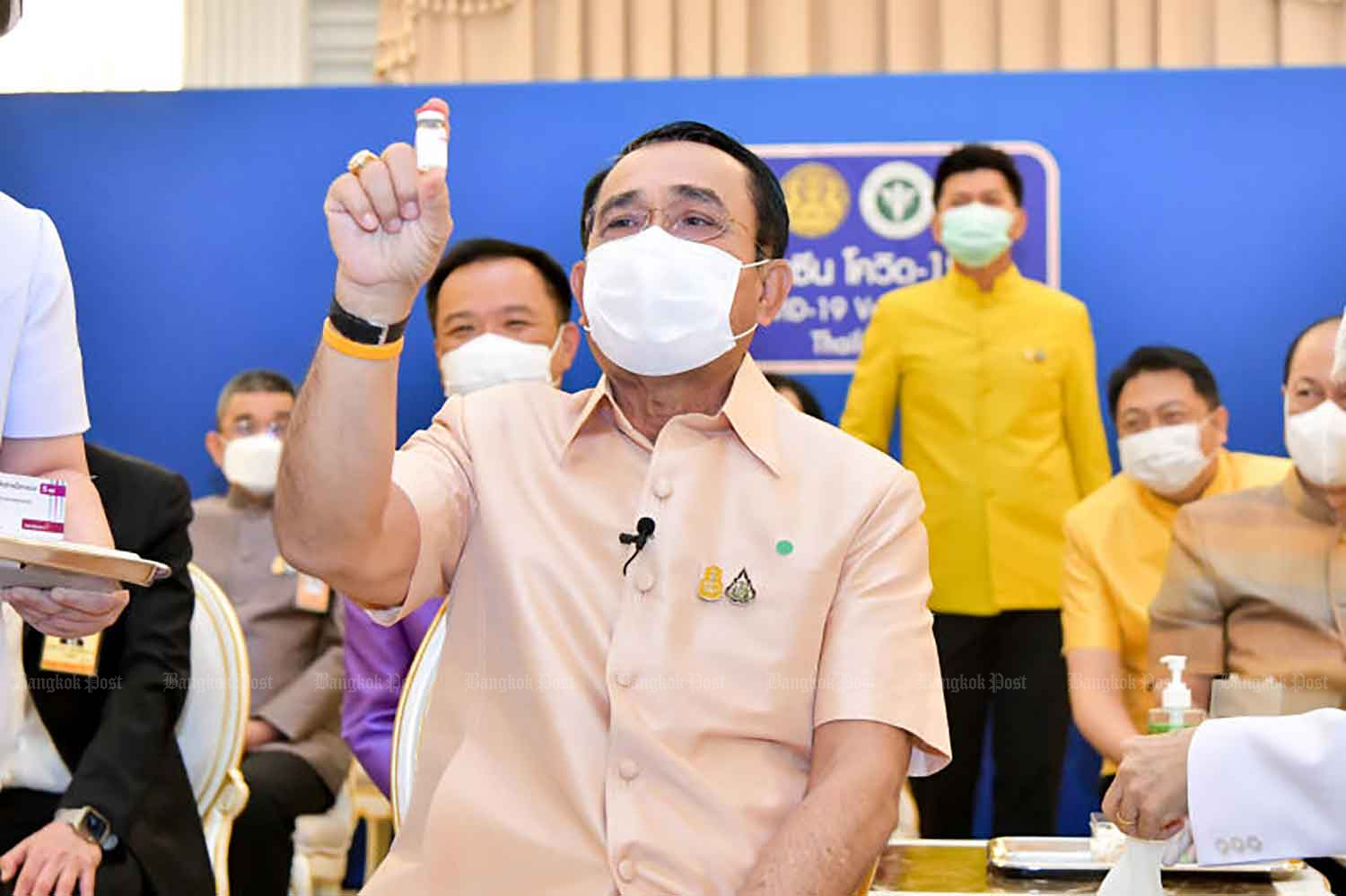Nation will use AstraZeneca, despite fears
published : 16 Apr 2021 at 09:34
writer: Gary Boyle
ORIGINAL SOURCE/WRITER: Apinya Wipatayotin

The AstraZeneca vaccine will be the mainstay for the state's Covid-19 vaccination programme, despite news of blood clot cases.
"We base decisions on scientific knowledge, not news. If something happens, we will let the public know. Please do not worry about it," Public Health Minister Anutin Charnvirakul said. "But we have expertise to closely monitor the vaccine information."
Thailand plans on using 71 million doses of the AstraZeneca vaccine and two million doses of CoronaVac developed by China-based Sinovac Biotech to inoculate about 35 million people or 50% of the population. The ministry will start the Covid-19 jab rollout this June and aims to have 50% of the population immunised by the end of this year.
However, the government is struggling to deal with trust and fear following news about the risk of blood clots following vaccination. Denmark this week became the first country to stop using AstraZeneca's Covid-19 vaccine.
The WHO along with Britain and the European Medicines Agency continues to recommend AstraZeneca's shot on the grounds that its benefits outweigh any risks.
As of now, Thai authorities have administered 581,308 doses from both brands to about 290,000 people. Two people -- one a senior monk with chronic heart disease and a 41-year-old man also with heart problems -- died after getting shots. The ministry ruled out any link to the vaccines.
Learn from listening
Vocabulary
- administer (verb): to give drugs, medicine, etc. to somebody - ให้ (ยา), จ่ายยา
- blood clot: when blood turns from liquid to solid form in blood vessels which can block blood vessels leading to problems such as heart attacks or strokes - ลิ่มเลือด
- chronic (adj): (of a disease, pain or problem) serious and lasting for a long time - เป็นประจำ
- dose: an amount of drug that has been measured so that you can take it - ปริมาณยาที่ให้ต่อครั้ง
- expertise: a high level of knowledge or skill - ทักษะความรู้, ความคิดเห็นของผู้เชี่ยวชาญ
- immunise: to protect a person or an animal from a disease, especially by giving them an injection of a vaccine or, by being exposed to a disease and recovering from it - ทำให้มีภูมิต้านทาน
- inoculate: to treat a person or animal with a vaccine to produce immunity against a disease -
- outweigh: are of greater importance than... -
- roll-out (noun): an occasion when a company introduces or starts to use a new product - การนำ(สินค้า ฯลฯ) ออกส่สายตาประชาชนเป็นครั้งแรก
- ruled out: stopped considering this as a possibility - ประกาศว่าเป็นสิ่งที่เป็นไปไม่ได้
- trust: a feeling of confidence in someone that shows you believe they are honest, fair, and reliable - ความเชื่อใจ, ความไว้วางใจ
- vaccine: a substance which contains a form that is not harmful of a virus and which is given to a person or animal to prevent them from getting the disease which the virus causes - วัคซีน
